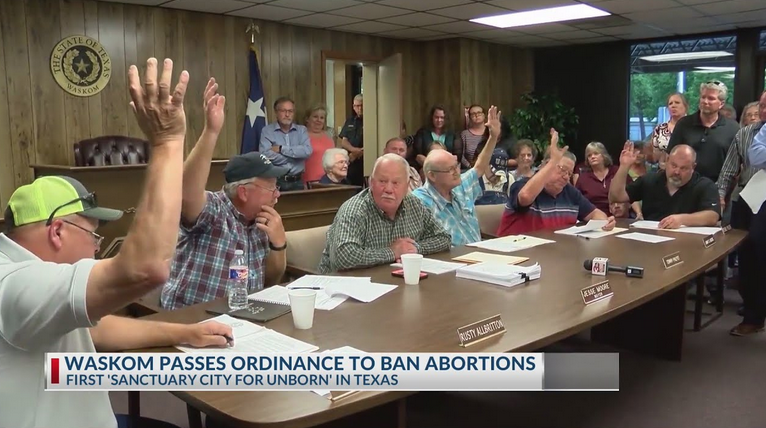Column: Catching Air
 ordinances fining and imposing legal liability on abortion clinics and anyone aiding or abetting abortions.
ordinances fining and imposing legal liability on abortion clinics and anyone aiding or abetting abortions.How does this work under Roe v. Wade?

Private lawsuits against third parties, other than the woman getting an abortion, are not the kind of government action that was barred by Roe and they should be allowed to proceed if they do not impact the woman’s so-called “right” to abortion.
And Third, even if Roe is not overturned, there is room under the Sanctuary City ordinances to outlaw abortions to the extent that does not place an “undue burden on women seeking abortions.” Nobody is completely sure what “undue burden” means, but it comes from
the Supreme Court’s 1992 case Planned Parenthood v. Casey allowing abortion restrictions that do not place an “undue burden on women.”
Considering the fact that cities are allowed to outlaw plastic straws or big box retail stores, or zoning laws in general, maybe it is not an undue burden to outlaw abortions in Sanctuary Cities, despite Roe, when women can go somewhere else for their abortions.
What Triggers will occur, if Roe is reversed?
In addition to the parts of the Sanctuary City laws that are immediately effective, several things could happen under the “trigger” provisions if Roe is reversed, which should concern abortionists even now:
2. Defendants in private lawsuits would lose their ability to argue Roe as a defense. There are a lot of unhappy fathers or grandparents of aborted babies who would not hesitate to sue the abortionist that killed their child or grandchild.
3. Sanctuary City laws could even have a retroactive effect if Roe is overturned, potentially subjecting abortionists to penalties for abortions committed even before then. Supreme Court cases like Roe v. Wade are not “laws;” they are simply the Court’s interpretation of the Constitution. Therefore, a reversal of Roe could mean it was erroneous from the start, retroactively null and void. This could open up the possibility for abortionists to be prosecuted under Sanctuary City ordinances even for abortions committed before the Court makes that ruling.
As a matter of fact, a significant number of states have pre-Roe laws against abortion still on the books that have been unenforceable since 1973 but could be automatically reinstated if Roe is overturned. Other states have enacted such laws more recently in preparation for a potential reversal of Roe. No doubt, there will be strenuous efforts by the abortion industry to nullify all abortion laws by future legislation if Roe goes away, but that is an unknown. In the meantime, the mere possibility of retroactive punishment should be a deterrent.
The test of time, and common sense

David G. Bjornstrom is a member of the U.S. Supreme Court bar and retired California attorney at law with 38 years specializing in business, estate and... MORE »




You must be logged in to post a comment.